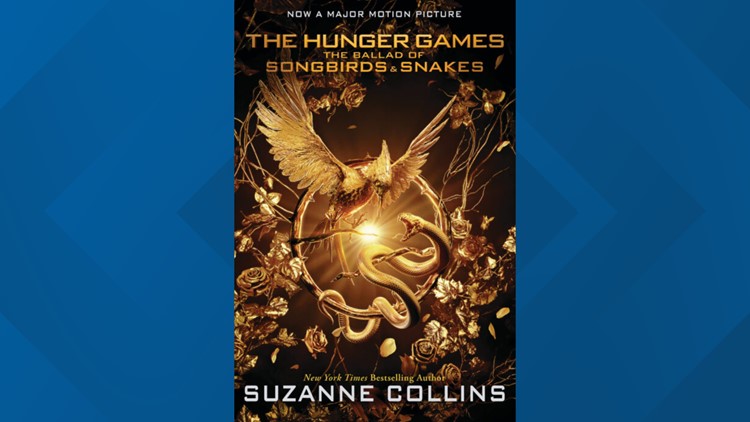UNITED STATES, — In 2008, when I was in middle school the dystopian genre erupted and everyone was quickly pulled in.
I remember reading “The Hunger Games;” devouring it quickly and continuing my reading journey with “The Host,” and “Ender in Exile.”
During this time dystopian books were the newest “it” thing in the reading world and it only got more hyped when “Divergent” and “The Maze Runner” were released the following years. And then the movies came out and all hell broke loose.
Admittedly “The Hunger Games” was one of my favorite books as a kid.
In retrospect, it’s a pretty dark book for a kid to read but I thoroughly enjoyed it.
And despite it being a dystopian book I didn’t feel like the premise was far-fetched. I knew the United States used to draft kids and send them to war and despite the modern world telling me that nothing like the Hunger Games could ever happen, I could see it become reality. I could imagine the world falling so far into war or depression that 24 innocent boys and girls were rounded up and killed.
A lot of bad things would have to happen first before we found ourselves in a real-life death match competition, but it could happen more so than humans riding dragons (not that I wouldn’t love that because I totally would.)
But I understood Plutarch in “Mockingjay” when he said, “We're fickle, stupid beings with poor memories and a great gift for self-destruction.”
After books one and two I thought Suzanne Collins’ series was on its way to becoming my favorite series, so imagine my disappointment when I read “Mockingjay” and it fell short.
For me, the ending of the trilogy was too rushed and the close of the great big story of Katniss Everdeen seemed like it wasn’t developed the way I as a loyal reader wanted.
My only saving grace was that I loved Peeta and was happy he got the ending he deserved.
Unfortunately, I feel the same way about “The Ballad of Songbirds and Snakes.” For me it falls just short of great.
“The Ballad of Songbirds and Snakes” was released in 2020 but after my experience with “Mockingjay” I didn’t run to the bookstore to buy it.
I told myself I didn’t need to know the origin story of Coriolanus Snow. I told myself I didn’t need to know why Snow became the cold, manipulative and calculating tyrant we see in the Hunger Games series.
But then the trailer for the movie was released and I was hooked. I wanted to read the book before I went to the movie, and I was definitely going to see the movie because the cast included Viola Davis and Peter Dinklage and that to me screams success.
So, I bought the book and delved straight in.
The story follows Coriolanus Snow who at this time is only 18-years-old and his family has fallen on hard times. The Snow’s are poor and yet nobody knows because Snow has lied to his friends and the outside world and convinced everyone that the Snow’s are as esteemed and rich as ever before. In an effort to bring his family back into high society Snow tries to earn the Plinth Prize, this will not only pay for university but also help the Snow’s return to their former glory.
But Snow and his classmates are informed they must mentor tributes who were reaped for the tenth Hunger Games. Their goal: try to help their tribute win the games. Of course, the odds are against Snow because he gets the humiliating assignment of mentoring the female tribute from district 12, the lowest of the low. Her name is Lucy Gray Baird and now their fates are intertwined.
Inside the arena Snow must help Lucy outsmart and outmaneuver every tribute and hopefully win. But as Lucy and Snow get closer, he finds himself caring about her and asks himself what kind of person he truly is and what he would do to survive?
Throughout most of the book I found myself empathizing with Snow. He wants to make his family proud; he wants to succeed in the capitol, but it’s a lot of pressure and it’s unfair to ask so much of a young teen. But then again what’s fair in the Hunger Games?
The book itself was easy to follow, and the story arcs and character growth was evident but for me the ending fell flat.
It was very anticlimactic. I wanted a big reveal, something shocking to happen but I was left with more questions than answers when I turned the last page.
I will admit that I did understand why Snow became so cold and hard because “it’s the things we love the most that destroy us,” but I didn't feel like the reason justified his actions. I wasn’t looking for a redemption story, but I wanted a more definitive reason of why Snow is the way he is.
Collins ended the book on a cliffhanger of sorts, and I think as a prequel it needed to give you answers not make you confused.
I did appreciate getting a glimpse of the Hunger Games during their primitive years and how the game makers made adjustments and were forced to think outside the box on how to make the games more “entertaining” for viewers.
I even loved the small tidbit of information about who created the games, how they came up with the idea and why, but I wished there was more to Snow's backstory.
Overall, I'd say “The Ballad of Songbirds and Snakes” was a good book but it left me wanting more.
TRENDING ON KENS:
> MORE ON KENS



